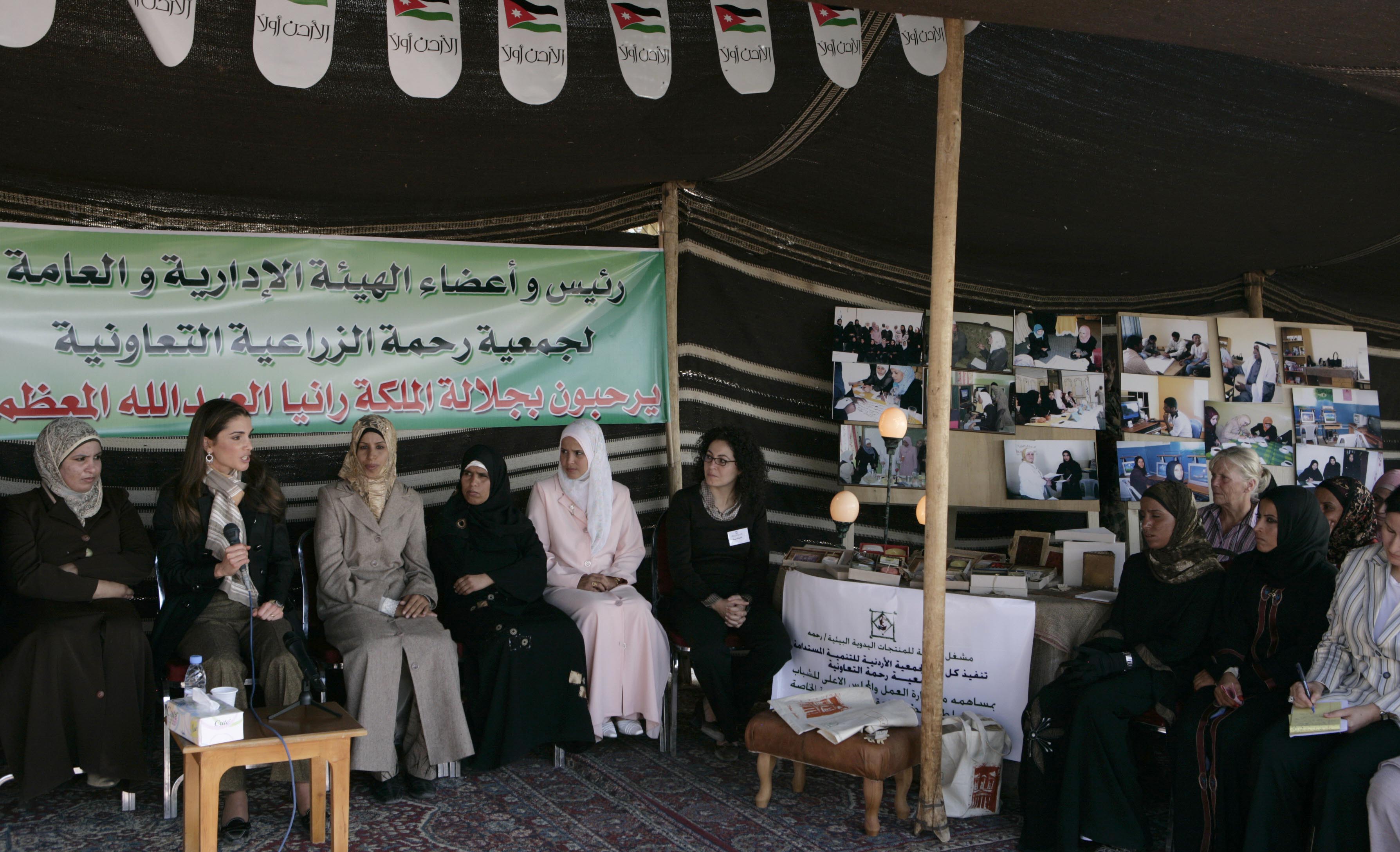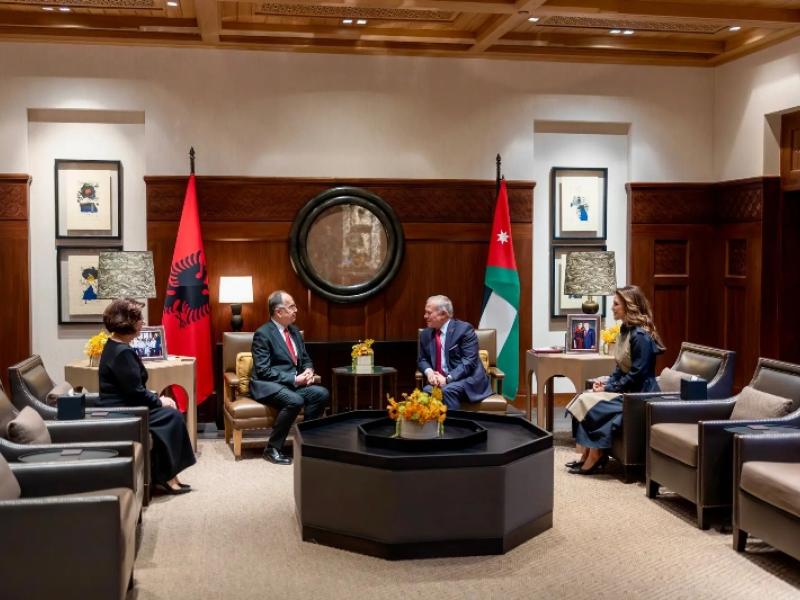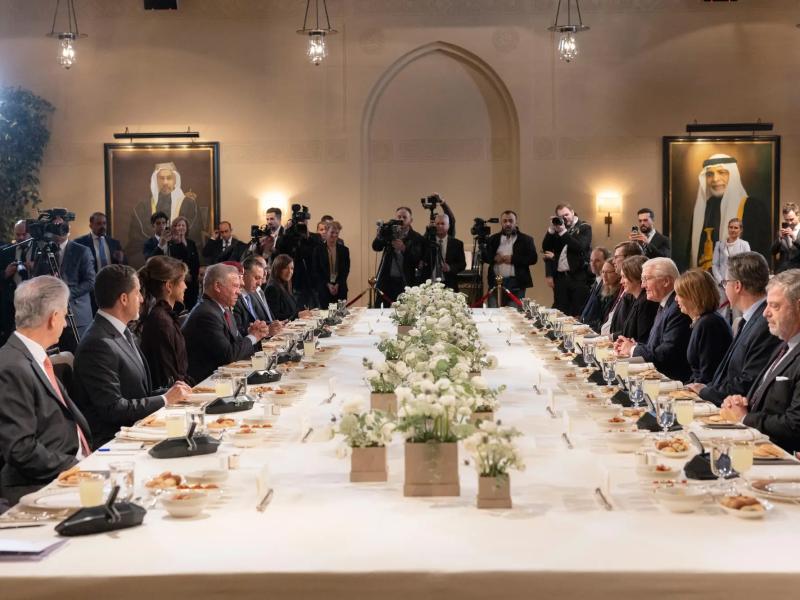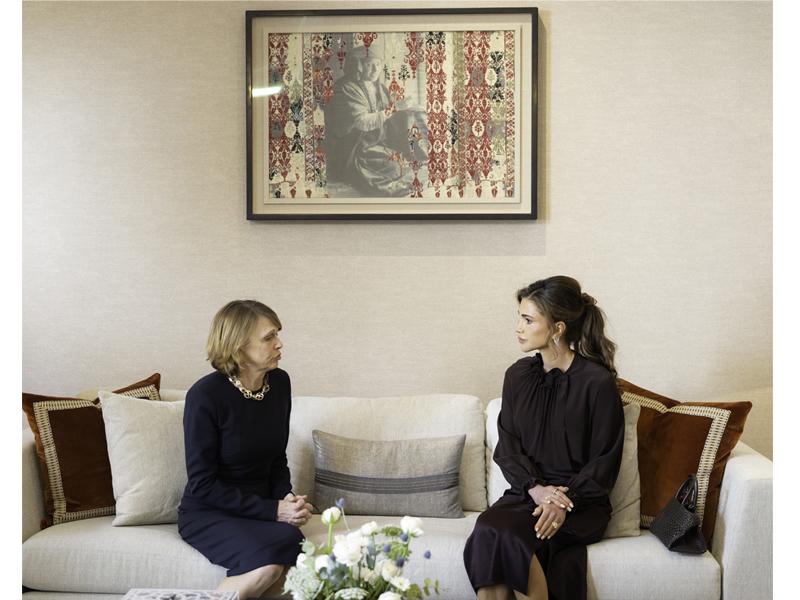(Jordan Times - Wadi Araba) Her Majesty Queen Rania visited two Wadi Araba villages where she checked on citizens’ conditions and projects implemented in the area with the support of the Jordan River Foundation (JRF).
Considered one of the country’s poverty pockets, Wadi Araba has limited natural resources and economic opportunities.
The JRF offers technical services to the area through the Rural Community Cluster Development Programme.
During her visit to Al Risha village, the Queen inspected the JRF model farm in the district, covering an area of 500 dunums, of which 200 dunums are already being cultivated and used for other productive purposes.
Beneficiaries of the Qaa Al Saeedin Cooperative Society, which manages the farm, told the Queen about their work experience, accomplishments and needs.
The Queen also spoke to the farmers, and asked them about their relationship with the society and the benefits they are reaping from this association.
Established in 2002, the Qaa Al Saeedin Cooperative Society currently has 600 members, representing Al Risha inhabitants, and residents of two nearby areas, Gharandal and Bir Madkor.
Mohammad Saeedin, the society’s president, explained how the project worked for the optimal utilisation of available water resources and highlighted new and diversified agricultural techniques adopted by the farmers.
The farm has a sprinkling irrigation system, in addition to a water pooling area.
It currently depends on a single underground water well that provides 12 cubic metres per hour, and a dam with a storage capacity of 0.25 million cubic metres, Saeedin said, calling for more water resources.
Queen Rania conveyed His Majesty King Abdullah’s greetings to the local community, stressing the importance of coordination and cooperation with all concerned parties to improve living conditions in the area, referring to the assistance that the Aqaba Special Economic Zone Authority (ASEZA) can provide in this field.
In response, ASEZA Chief Commissioner Nader Dahabi pledged that ASEZA will dig four new underground water wells and connect the already existing well with electricity to help it function efficiently.
The farm, which employs 25 seasonal and 15 permanent employees, currently sells its produce in the local market. It grows different kinds of fruit and vegetables, including citrus fruit, grapes, watermelons and tomatoes.
During the visit, the Queen watched a film on the farm, which also raises livestock, including 160 goats.
Ghaleb Qdah, director of the JRF Community Empowerment Programme, presented a briefing on JRF contributions to the project to develop Wadi Araba.
The Queen also went to the village of Rahmeh, a 15 minute drive from Al Risha, and checked on the conditions of several families.
Meeting with members of the Rahmeh Charitable Society, the Queen asked them about their participation in the parliamentary elections and their efforts to garner support for women candidates.
The Queen toured the society’s training facilities while its president briefed her on future programmes.
Established in 1995, the society focuses on ostrich farming and ostrich egg painting and the income generated from these projects is used to benefit the local community and support poor households.
During His Majesty King Abdullah’s visit to Wadi Araba, one of his directives was providing transportation for students in the area, where almost 28.7 per cent of the approximately 7,000 inhabitants are illiterate, which is considered a very high percentage in comparison to the 9.9 per cent illiteracy rate in the Kingdom.
The district has a total number of nine schools and drop-out rates were high due to unavailability of transportation, especially as schools are located far from residential areas.



